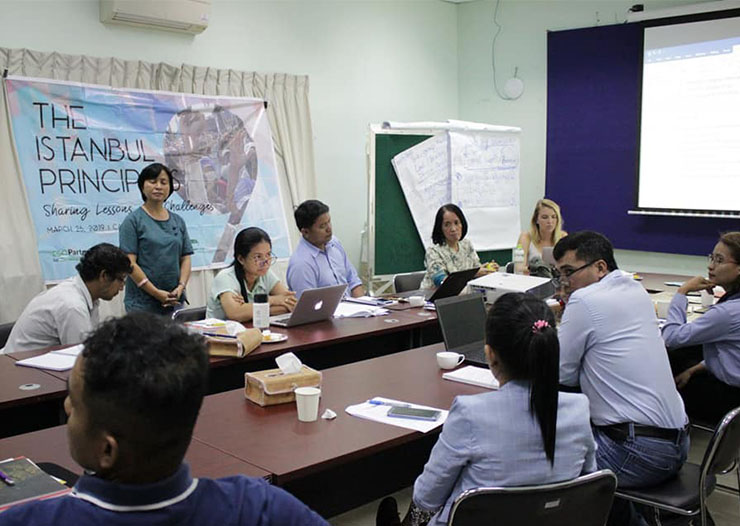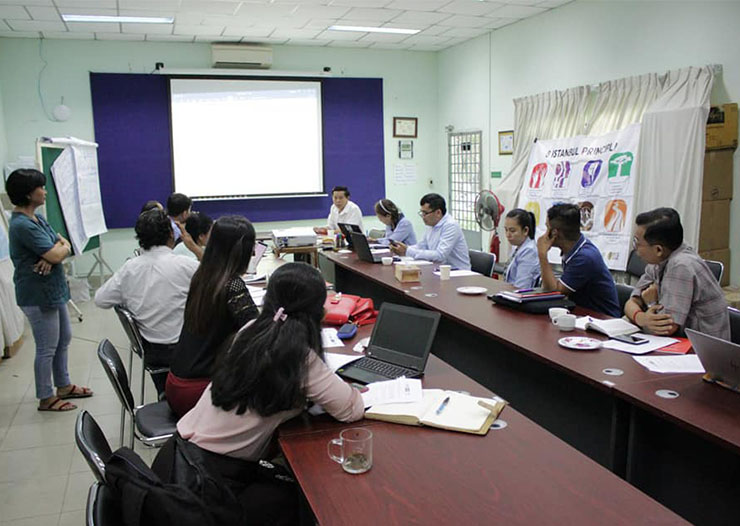
The Peoples’ Coalition on Food Sovereignty (PCFS) presented its lessons learned and challenges encountered on its work regarding the Istanbul Principles (IP) during the forum entitled “The Istanbul Principles: Sharing Lessons and Challenges” held on March 26, 2019 in Phnom Penh, Cambodia. The activity was jointly organized by PCFS, Asia Pacific Research Network (APRN), The NGO Forum (NGOF) on Cambodia and the CSO Partnership for Development Effectiveness (CPDE).
Fifteen participants were present coming from CEDA, Agronomes et Veterinaires Sans Frontieres (AVSF), Development Partnership in Action (DPA), Centre d’Etude et de Developpement Agricole Cambodgien (CEDAC), WE EFFECT, Coalition of Cambodian Farmer Community (CCFC), Diakonia, Caritas, NGOF and PCFS.
The meeting aimed to share an update and lessons learned on the CSO Development Effectiveness work and Country Compact, to present the rural sector’s guidelines on IP, and to identify challenges on country compact and the Istanbul Principles.

Ms. Rhoda Gueta, PCFS-Global Coordinator, explained that the PCFS and its networks have long been promoting the Istanbul Principles, and that these principles have been “at the heart of their work” even before they (IP) were formalized in 2010. She also pointed out that “Agreement on what effective development is, is essential for our work. When the application of human and financial resources leads to beneficial results as determined by all stakeholders, effective development has taken place.”
The following challenges were identified: commitment of CSOs in applying the Istanbul Principles, how to advocate I.P. in the rural area in Cambodia, awareness of the government sector on IP in Cambodia, limited/closing space of CSOs, and collecting input/data from CSOs in Cambodia.

The following recommendations were agreed by the participants: (1) to further disseminate information/awareness of IP, especially in Cambodia (eg. echo the forum with more CSO participants); (2) help one another in the capability building (especially on research and advocacy); (3) push the governments in their commitment to apply IP especially in providing an enabling environment for CSOs; and (4); scale up our country level work in pushing for a genuine people-centered development.